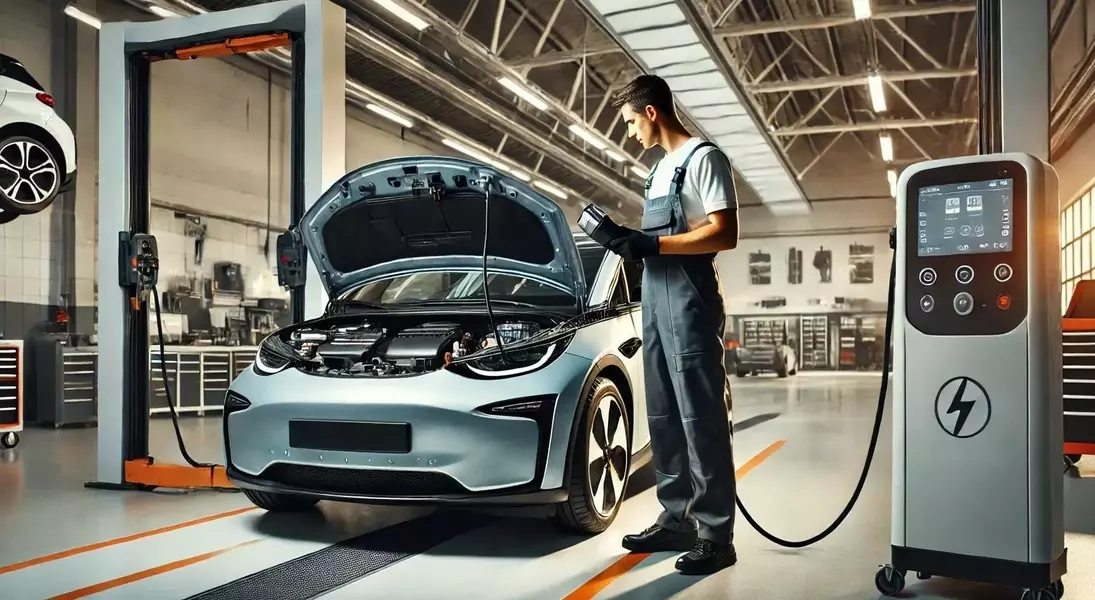The Surprising Cost Savings of Electric Vehicles: A Comprehensive Analysis
As the world shifts towards a more sustainable future, the adoption of electric vehicles (EVs) has been steadily on the rise. However, the true cost-saving potential of these eco-friendly alternatives has often been a topic of debate. Recent data released by Epyx, a leading provider of fleet management solutions, sheds light on a surprising revelation: electric vehicles are starting to show significant cost savings in service, maintenance, and repair (SMR) compared to their hybrid and internal combustion engine (ICE) counterparts.Unlocking the Cost-Saving Potential of Electric Vehicles
Comparing SMR Costs Across Vehicle Types
The data from Epyx, based on a sample of over 400,000 EVs, reveals a compelling trend. In the first year of operation, the average SMR spend on an EV was £141, compared to £195 for hybrids and £199 for ICE vehicles. This gap only widens as the vehicles age, with the three-year SMR costs standing at £221 for EVs, £341 for hybrids, and £401 for ICE vehicles.Furthermore, the data shows that the average number of garage visits for EVs after three years is 1.36, compared to 1.53 visits for both hybrids and ICE vehicles. This suggests that electric vehicles require fewer maintenance and repair interventions, contributing to the overall cost savings.Considering Wear and Tear Components
While these numbers are undoubtedly compelling, the analysis acknowledges the need for further data on wear and tear components, particularly tires and brake pads, as the fleet of EVs grows older. The report projects an increased number of tires and brake pads on older EVs due to the extra weight carried by the battery power, as opposed to internal combustion engine vehicles.Additionally, the potential costs associated with failing batteries remain a significant unknown factor that will require close monitoring as the EV market matures.The Role of AI in SMR Management
The article also explores the impact of artificial intelligence (AI) on vehicle acquisition, remarketing, and the future of service, maintenance, and repair management. Data is already available to forecast the likelihood of component failure on a particular vehicle based on AI-powered analysis of a vehicle's MOT history.Fleet management software has also incorporated automated invoice approval for routine invoices, but the article suggests that there is room for AI to streamline this process even further. The potential for AI to alert fleet operators to vehicle issues before a fault code is triggered is particularly intriguing, as it can lead to substantial savings in operating costs by improving fuel efficiency and reducing vehicle downtime.The Transformative Potential of AI-Powered Maintenance
The article highlights the work of Intangibles, a company that has developed a system capable of reducing fuel use and maintenance costs by 10%, while also reducing the number of breakdowns by 75%. This system monitors data from the vehicle's CAN bus in real-time, creating an accurate model of the vehicle's health and providing recommendations to the fleet manager to address areas of concern.As the adoption of electric vehicles continues to grow, and the integration of AI-powered technologies becomes more prevalent, the potential for cost savings and operational efficiencies in the service, maintenance, and repair sector is poised to reach new heights. The data and insights presented in this article offer a glimpse into the transformative future of the automotive industry, where electric vehicles and advanced technologies converge to deliver unprecedented cost savings and operational benefits.

